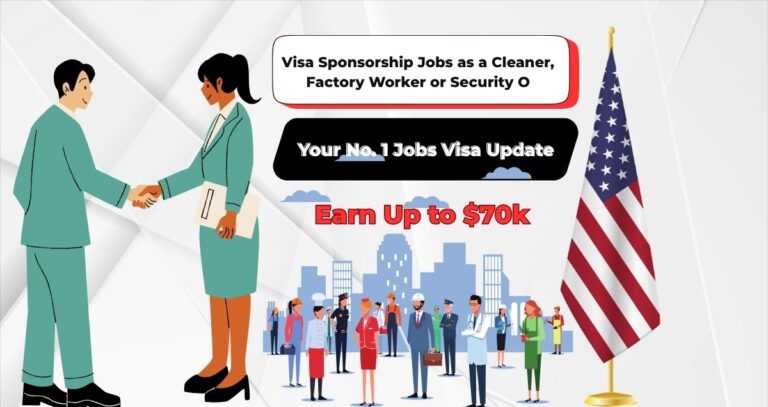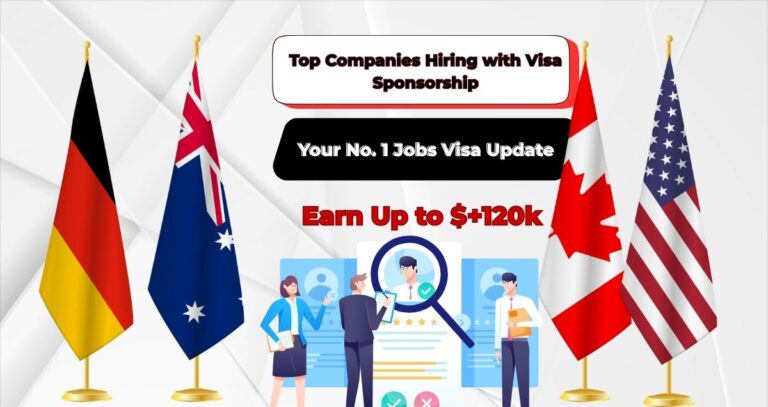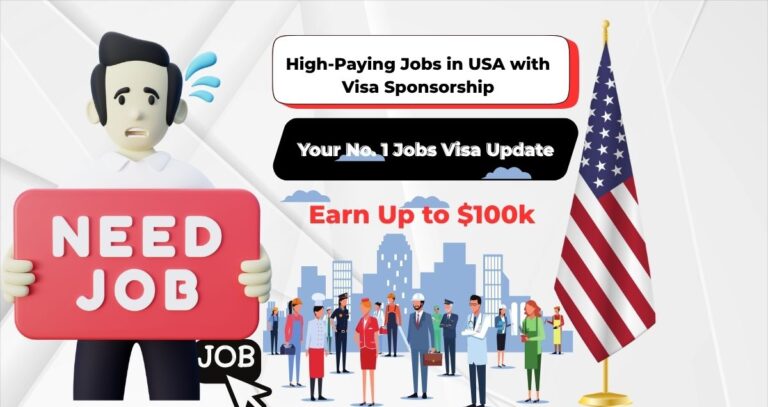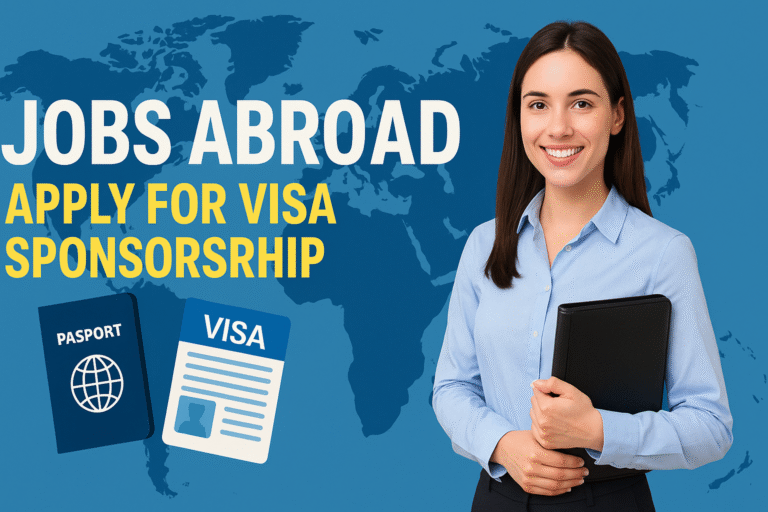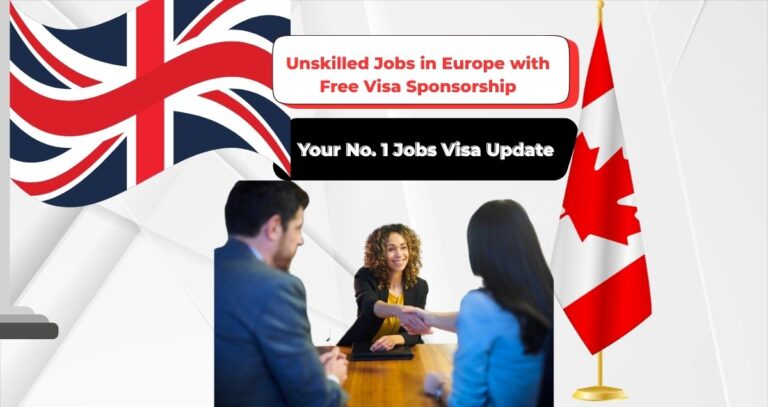How to Secure an H-1B Visa with Visa Sponsorship
Ravi had just finished his master’s degree in computer science from a top U.S. university. He was brilliant, focused, and ready to contribute to the tech world. But without proper visa sponsorship, all his dreams could fall apart. Like thousands of skilled professionals and international students, Ravi faced the same big question:
How to get H1B visa sponsorship
This question haunts many skilled immigrants. The process is complicated. There’s a lottery. There are deadlines. There are rejections. And most importantly, there’s the fear of not finding the right employer.
This update is written for people like Ravi—and maybe, you. If you’re looking for a real chance at working legally in the U.S., the following detailed steps and legal tips can make a big difference. You’ll learn how to spot companies that sponsor H1B visas, how to work with a trusted H1B visa lawyer, and what to expect from start to finish.
The H-1B Visa and Sponsorship Process
Many applicants begin without fully knowing what an H-1B visa actually is, what sponsorship means, and why the process can feel overwhelming.
What Is an H-1B Visa?
The H-1B visa is a non-immigrant visa that allows U.S. companies to employ foreign workers in specialty occupations. It’s popular among software engineers, healthcare workers, architects, and analysts.
To qualify, you usually need a bachelor’s degree or higher in a related field. That’s why this visa is commonly used by tech companies, startups, and multinational firms hiring international graduates.
Terms like H1B visa eligibility and H1B visa requirements often confuse new applicants. In simple terms, you need:
- A job offer from a U.S. company in a specialty occupation.
- Educational qualifications (usually a degree related to the job).
- Proof the employer can pay the required wage.
For international students, the H-1B route offers a direct path to remain in the U.S. after completing their studies.
Many startups also pursue H1B visa for startup employees through cap-exempt options or by partnering with academic institutions.
What Does Visa Sponsorship Mean to You?
Visa sponsorship means a U.S.-based company agrees to submit paperwork and pay legal fees to help you legally work in the United States.
An employer must:
- File a Labor Condition Application (LCA) with the Department of Labor.
- Submit an H-1B petition to the U.S. Citizenship and Immigration Services (USCIS).
- Cover the associated H1B visa application fees.
This is why working with experienced visa sponsorship lawyers or a seasoned H1B visa attorney can be a major asset. A company unfamiliar with the process might make costly mistakes, causing delays or denials.
If you’re uncertain, many applicants turn to H1B visa consulting firms to match with pre-vetted employers. These firms also offer help with H1B visa document checklists and H1B visa preparation services.
Why Is the H-1B Visa Process Complex?
There are three main reasons:
- H1B Visa Lottery Registration: Every year, there’s a cap on the number of H-1B visas issued. That’s where the lottery system comes in. Applicants are selected randomly, meaning even qualified candidates might not get picked.
- Cap-Exempt Challenges: Certain organizations—like universities or non-profits—can file H1B petitions anytime because they are cap-exempt. Knowing the difference between cap-subject and cap-exempt matters greatly.
- Denial Risks: Many applications are denied due to simple errors, poor documentation, or ineligibility. That’s why legal representation by an immigration lawyer for H1B or H1B visa denial appeal expert is often crucial.
Also, keep in mind the H1B visa processing time can vary based on the service center and whether you’re using H1B visa premium processing.
According to USCIS data, over 25% of H1B petitions get rejected yearly due to compliance issues, poor documentation, or fraud concerns. That’s why H1B visa compliance and H1B visa auditing services are more critical than ever.
Opportunities: Finding Companies That Sponsor H-1B Visas
This section tackles one of the most important parts of your journey—getting hired by a company willing to support your visa process.
Not every industry is willing or able to sponsor. But several sectors actively recruit foreign workers due to talent shortages. The top ones include but not limited:
- Information Technology (IT): Think Google, Amazon, and startups looking for software developers and data analysts.
- Healthcare: Nurses, doctors, and specialists are in high demand, especially with U.S. labor shortages.
- Engineering: Civil, electrical, and mechanical engineers frequently find sponsors.
- Finance and Banking: Analysts, risk managers, and economists often qualify for H-1B roles.
Some of the well-known companies that sponsor H1B visas include:
- Deloitte
- Cognizant
- Apple
- Intel
- Accenture
- Capgemini
Don’t overlook lesser-known firms or startups. Many small tech businesses offer H1B visa for startup roles, especially when using legal support like H1B visa processing services.
How to Research Sponsoring Employers?
Finding the right employer takes more than browsing job boards. Here are some practical methods:
- Use the USCIS H-1B Disclosure Data to see a list of employers that have sponsored in the past.
- Visit platforms like MyVisaJobs to see real-time sponsorship trends.
- Work with H1B visa consulting platforms or staffing firms.
- Use LinkedIn to reach out directly to HR teams or recruiters at sponsoring companies.
Look for job descriptions that clearly mention “visa sponsorship available” or “willing to sponsor H-1B.”
It also helps to reach out to an H1B visa lawyer or a firm offering H1B visa application help—they often have internal lists of compliant employers.
What Makes a Strong H-1B Candidate?
Not every candidate gets picked—even with sponsorship. Here’s what gives you an edge:
- Advanced qualifications (Master’s or PhD from a U.S. institution).
- Work experience in high-demand fields like cybersecurity or AI.
- Excellent documentation following the H1B visa document checklist.
- Confidence in the H1B visa interview questions stage.
Working with the best H1B visa lawyers can also prepare you for unforeseen issues such as H1B visa denial reasons or eligibility complications.
Include a compelling resume and cover letter. Tailor your LinkedIn profile with U.S. keywords and job roles. This increases visibility to U.S. recruiters.
Steps to Secure an H-1B Visa
Knowing what to do—and when—can be the difference between success and rejection. Below are essential steps to help you prepare and improve your chances of H-1B approval.
How to Prepare for the H-1B Visa Application?
Before you apply, you’ll need to gather documents and understand what the process really demands. That’s where the H1B visa document checklist becomes your best friend.
Common documents include:
- Passport and academic records
- Job offer letter from a sponsoring employer
- Educational evaluation (for foreign degrees)
- Labor Condition Application (filed by employer)
- Updated resume
At this stage, it’s common to consult H1B visa preparation services or use checklists provided by H1B visa consulting firms to avoid omissions. Errors in this phase are one of the top H1B visa rejection reasons.
Timing is everything. The H1B visa application timeline typically starts in March for lottery registration. If selected, employers can file petitions starting April 1.
How to Work with an H1B Visa Lawyer?
Immigration law is complex. A qualified H1B visa lawyer or immigration lawyer for H1B can guide you through:
- Completing petitions
- Avoiding compliance mistakes
- Handling lottery registration
- Appealing denials
If you’re switching employers, a H1B visa transfer attorney ensures legal status during the transition. If you face a denial, a H1B visa denial appeal requires timely and strategic legal action.
Hiring one of the best H1B visa lawyers also helps with interpreting rules about H1B visa extension, change of employer, or cap-exempt filing.
How to Handle the H-1B Visa Interview?
If you’re applying from outside the U.S., the consular interview is mandatory. Be prepared to answer questions like:
- What is your job title and role?
- What makes your qualifications suitable?
- Who is sponsoring you?
- What are your salary and job location?
Many candidates use H1B visa interview questions prep guides or consult visa sponsorship lawyers for mock interviews. Be confident, clear, and honest. Bring supporting documents in an organized folder.
Knowing how to respond can lead to immediate approval and receipt of the H1B visa approval notice.
What Is H-1B Visa Premium Processing?
This is a faster service offered by USCIS where you get a decision in 15 days—ideal for urgent job offers.
While it adds extra H1B visa cost, many applicants prefer it over waiting 3–6 months. Employers usually cover the fee, but confirm upfront.
Many H1B visa lawyers suggest premium processing for peace of mind or when job roles are time-sensitive.
How to Stay Updated on H-1B Visa Reforms?
The visa landscape can shift. Be proactive:
- Track H1B visa reform legislation in Congress
- Use the H1B visa status check tool on USCIS.gov
- Follow immigration-focused LinkedIn pages or newsletters
The right updates can save you time and money—and prepare you for changes like wage level adjustments or cap increases.
Final Word
Securing an H-1B visa is more than filling forms—it’s about strategy, timing, and professional support. From finding companies that sponsor H1B visas to working with the right H1B visa lawyer, every decision counts.
Whether you’re an international student or a seasoned professional, you now have the steps, tools, and resources to move forward.
Don’t face this journey alone. Get help from H1B visa consulting firms, track your progress with the H1B visa application timeline, and protect your future with expert legal help.
Have you gone through the process or preparing to? Share your experience or questions below. Let’s help others grow from your story.
